第36章
At this moment she was much inclined to sit on into the night, spinning her light fabric of thoughts until she tired of their futility, and went to her mathematics; but, as she knew very well, it was necessary that she should see her father before he went to bed.
The case of Cyril Alardyce must be discussed, her mother's illusions and the rights of the family attended to. Being vague herself as to what all this amounted to, she had to take counsel with her father.
She took her letters in her hand and went downstairs. It was past eleven, and the clocks had come into their reign, the grandfather's clock in the hall ticking in competition with the small clock on the landing. Mr. Hilbery's study ran out behind the rest of the house, on the ground floor, and was a very silent, subterranean place, the sun in daytime casting a mere abstract of light through a skylight upon his books and the large table, with its spread of white papers, now illumined by a green reading-lamp. Here Mr. Hilbery sat editing his review, or placing together documents by means of which it could be proved that Shelley had written "of" instead of "and," or that the inn in which Byron had slept was called the "Nag's Head" and not the "Turkish Knight," or that the Christian name of Keats's uncle had been John rather than Richard, for he knew more minute details about these poets than any man in England, probably, and was preparing an edition of Shelley which scrupulously observed the poet's system of punctuation. He saw the humor of these researches, but that did not prevent him from carrying them out with the utmost scrupulosity.
He was lying back comfortably in a deep arm-chair smoking a cigar, and ruminating the fruitful question as to whether Coleridge had wished to marry Dorothy Wordsworth, and what, if he had done so, would have been the consequences to him in particular, and to literature in general.
When Katharine came in he reflected that he knew what she had come for, and he made a pencil note before he spoke to her. Having done this, he saw that she was reading, and he watched her for a moment without saying anything. She was reading "Isabella and the Pot of Basil," and her mind was full of the Italian hills and the blue daylight, and the hedges set with little rosettes of red and white roses. Feeling that her father waited for her, she sighed and said, shutting her book:
"I've had a letter from Aunt Celia about Cyril, father. . . . It seems to be true--about his marriage. What are we to do?""Cyril seems to have been behaving in a very foolish manner," said Mr.
Hilbery, in his pleasant and deliberate tones.
Katharine found some difficulty in carrying on the conversation, while her father balanced his finger-tips so judiciously, and seemed to reserve so many of his thoughts for himself.
"He's about done for himself, I should say," he continued. Without saying anything, he took Katharine's letters out of her hand, adjusted his eyeglasses, and read them through.
At length he said "Humph!" and gave the letters back to her.
"Mother knows nothing about it," Katharine remarked. "Will you tell her?""I shall tell your mother. But I shall tell her that there is nothing whatever for us to do.""But the marriage?" Katharine asked, with some diffidence.
Mr. Hilbery said nothing, and stared into the fire.
"What in the name of conscience did he do it for?" he speculated at last, rather to himself than to her.